As AI’s influence continues its ascent, the month of May painted a vivid picture of the hybrid human-AI world rapidly and profoundly reshaping social media. Instagram dominated the conversation thanks to its revamped video and connection features harnessing AI. Meta forged ahead with its AI-fueled vision for Facebook’s future, while Microsoft and LinkedIn provided fascinating insights into AI’s workforce impact just one year after going mainstream. Pinterest also made waves by partnering with Real Simple magazine on shoppable content.
Let’s dive into the key developments.
Facebook Bets the Future on AI
Facebook is laser-focused on winning over Gen Z users and becoming the “world’s best recommendation technology” by the end of 2026. In their article “The Future of Facebook,” they laid out grand plans to essentially recreate the social media experience for young adults through advanced AI capabilities.
Key Takeaways
- Over 40 million young adults in the US/Canada are daily active Facebook users, the highest in 3 years
- Facebook’s vision is for “social discovery that opens your world” powered by AI recommendations across video, feed content, dating, marketplaces and more
- They’ve upgraded ranking models for improved Reels and Feed recommendations
- By 2026, Meta aims to have the best recommendation tech through advanced AI architectures
- Generative AI like Meta’s LLaMA will enable deeper content interactions (e.g. recipe customization)
- Improvements were made to the overall video experience with an updated full-screen player
- A new “Professional Mode” has grown to 100M+ daily creators looking to monetize content
The AI-fueled content engine is clearly the key to Facebook’s future. Whether it succeeds in captivating Gen Z remains to be seen.
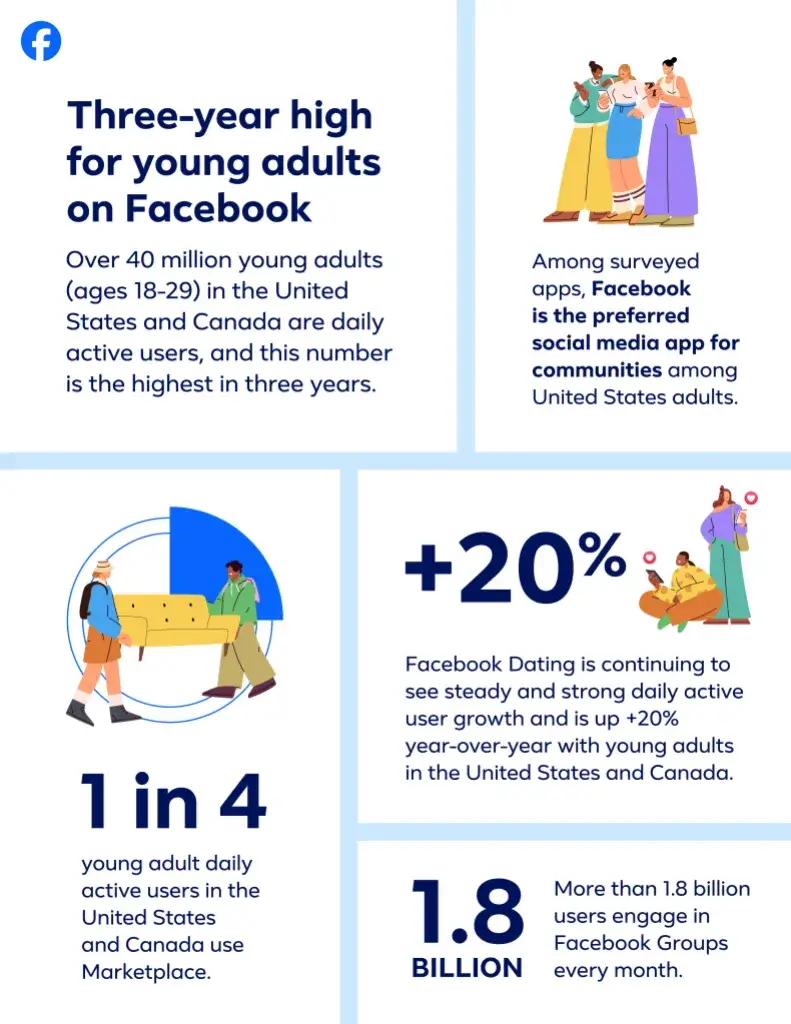
Mixed Messaging and Unskippable Ads on Instagram
Instagram continued sending mixed signals and contradictory advice to creators and users in May. Its official accounts showed how to post Reels longer than 90 seconds, only to confirm that those longer videos aren’t eligible for maximum distribution and discovery on Explore or the Reels tab.
The platform stirred up criticism by sharing then swiftly deleting a video warning creators about using certain call-to-action prompts like those from ManyChat, leaving creators confused with only a vague clarification statement.
Most controversially, Instagram confirmed testing “unskippable video ads” in users’ feeds via inescapable “ad breaks” that force people to watch ads of unknown length before resuming their scrolling experience.
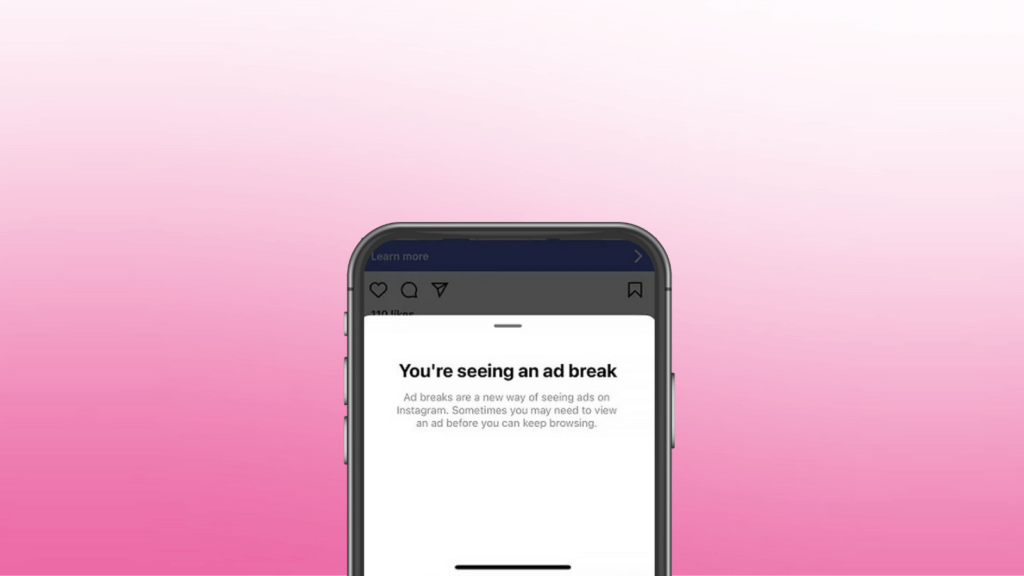
Instagram also announced new features and strategies. It will start systematically recommending quality short-form videos from smaller creators to exponentially growing audiences if the content drives engagement.
To enhance user control and foster more meaningful interactions, Instagram announced a new feature that allows users to restrict interactions to their “Close Friends” list. With this feature, only those on your “Close Friends” list can:
- See and comment on your posts
- Send you DMs
- Reply to your stories
- Tag you in posts and comments
- Mention you in their stories
Other followers can still interact with your content, but their comments, messages, and tags will be hidden from both you and the wider Instagram community.
Threads Desktop Updates
Twitter’s text-based counterpart Threads launched welcome upgrades to its desktop experience, including Tweetdeck-like feed organization capabilities. New gestures also give users more filtering control, like swiping right/left on posts to signal interest (or lack thereof) to improve recommendations.

TikTok Troubles
The hits kept coming for TikTok on multiple fronts in May. The state of Utah filed yet another lawsuit alleging the platform profits from child sexual exploitation by connecting “innocent victims to predators in real-time.”
Moreover, Netflix’s new documentary “Dancing for the Devil” provided a disturbing look at the Shekinah Church’s alleged cult-like control and manipulation of TikTok influencers like Miranda Wilking.
From a business perspective, TikTok announced it is pausing its e-commerce push across Europe to double down on growing its US market share amidst intense government scrutiny. Reports also emerged that TikTok is developing a separate core algorithm for the US to address national security concerns and potentially facilitate a forced sale of its American operations.
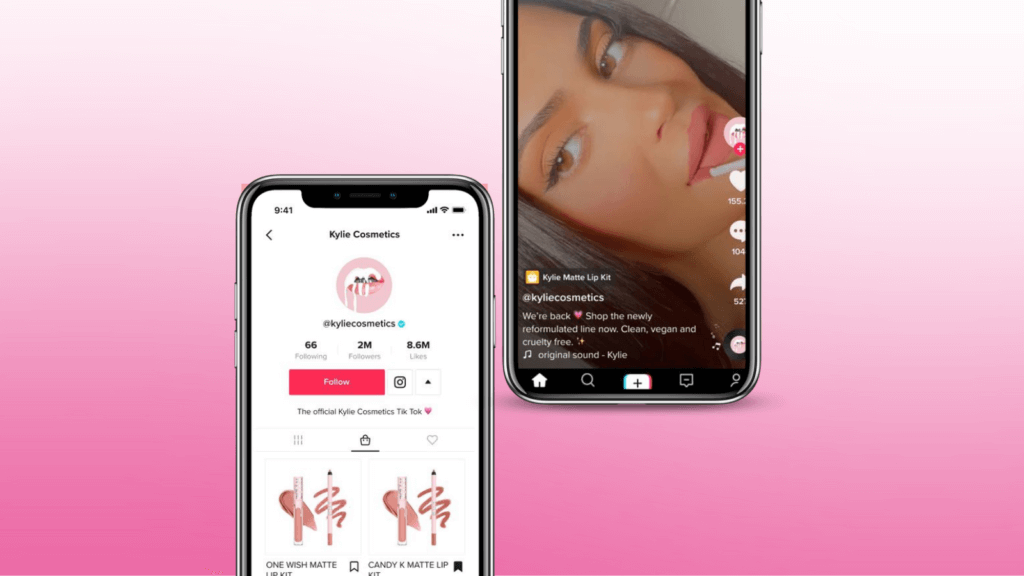
Regulatory pressure on TikTok reached a boiling point in May, putting the future of the wildly popular platform in jeopardy, at least in its current Beijing-affiliated form.
LinkedIn’s AI Workforce Insights
Microsoft and LinkedIn released their highly anticipated 2024 Work Trend Index Report focused on AI’s workplace impact just one year after going mainstream.
A few key findings from their survey of 31,000 professionals across 31 countries:
- 75% of knowledge workers now use AI at work to save time and boost creativity
- 78% are bringing their own AI tools (“Bring Your Own AI”) due to lack of company vision
- 46% are considering quitting their jobs, an all-time high since the Great Reshuffle
- Only 39% have received AI training from their employer
- An elite group of “AI power users” are reimagining processes and saving 30+ minutes/day
- This group is 61% more likely to have CEO support for using generative AI


The workforce clearly recognizes AI’s potential, but there’s a concerning leadership vacuum around strategic deployment and enablement. Those who empower their employees could leapfrog the competition.
In addition to the research, LinkedIn launched some fun AI-powered logic games to increase user engagement and unveiled premium tools to leverage AI for job matching, resume enhancement, networking recommendations and more.
Pinterest’s Shoppable Magazine
In an innovative print-to-digital collaboration, Pinterest partnered with Real Simple magazine on their first “Shoppable Best & Brightest” issue spotlighting over 120 products. The magazine features QR codes that take readers to curated Pinterest boards where they can purchase the items or save them for later consideration.
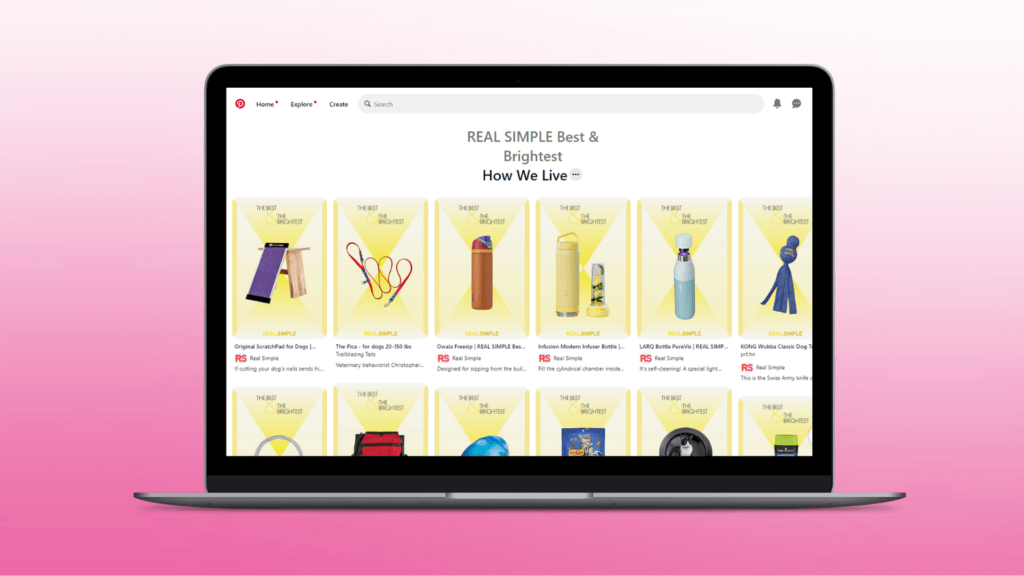
This seamless merging of analog and digital shopping experiences could become a model for publishers seeking new revenue streams and engagement opportunities in our AI-powered world.
While AI’s influence only continues growing, user privacy, ethical practices, and balanced experiences will likely remain pressing issues for platforms to navigate.
Subscribe to our newsletter to ensure you never miss an essential update on digital marketing trends from Ultraviolet. We’ll continue providing expert insights to help your brand stay ahead of the curve.


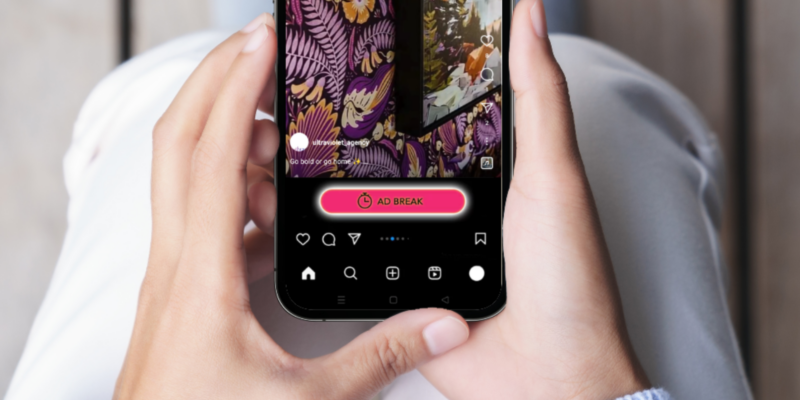


Leave a Reply